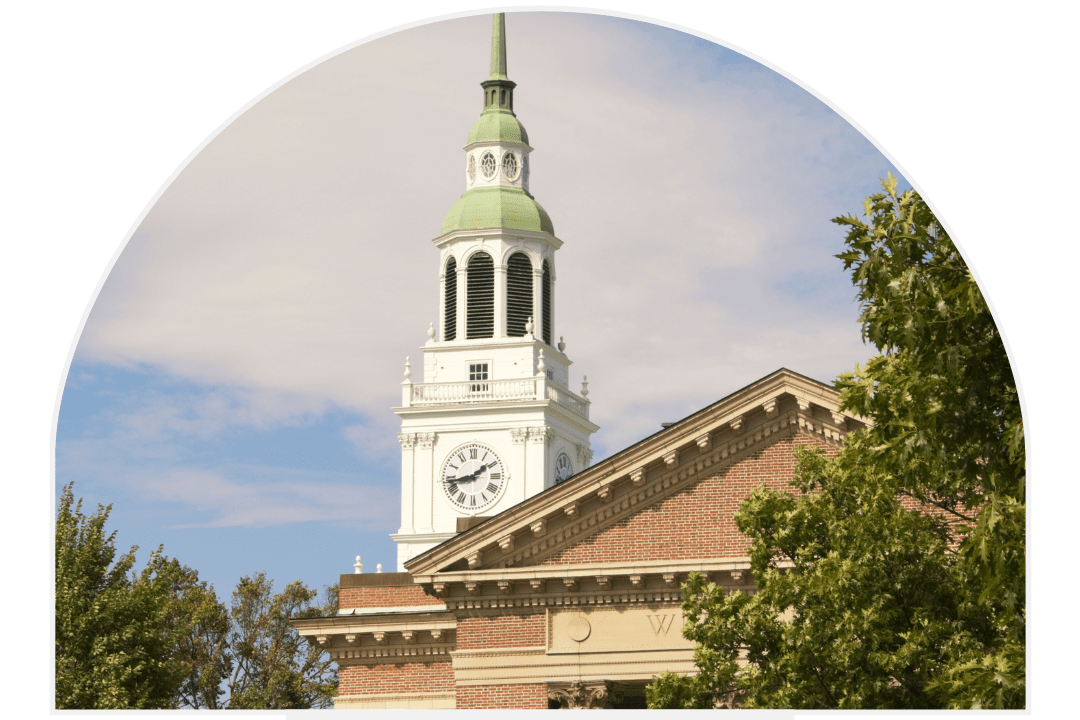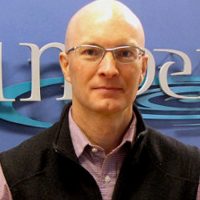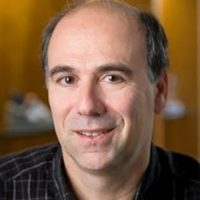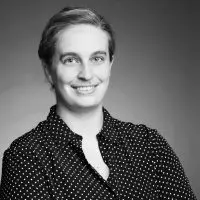Simbex Partnered with the Dartmouth Innovations Accelerator for Cancer (DIAC) to Provide Entrepreneurial Training.

A Need for Real-World Entrepreneurial Training
The Magnuson Center for Entrepreneurship at Dartmouth College offers entrepreneurial training through an approach that connects innovators with industry experts. In 2020, the Magnuson Center and the Dartmouth Cancer Center partnered to launch the Dartmouth Innovations Accelerator for Cancer (DIAC) to provide cancer researchers with a foundation in entrepreneurship to guide the translation of their research findings into marketable products and services that positively impact the lives of cancer patients and the people who care for them. For many DIAC participants, technology commercialization is an entirely new knowledge base and skill set and requires them to think about their research and its implications in new ways. Magnuson Center Associate Director for Strategic Initiatives Barry Schweitzer, Ph.D. utilizes his network of biotechnology investors and other industry experts to connect with DIAC participants and engaged Simbex to develop and deliver the educational component of the course. The Simbex Commercialization Strategy team, led by Angela Smalley, Ph.D., draws on their experience providing commercialization education courses to cohorts of rehabilitation innovators to develop a curriculum that would engage cancer researchers with both early-stage medical devices and pharmaceutical product concepts.
“It’s been this huge crash course to all of these things that school does not teach you,” says Siddhant Parwal ’23, who participated with teammate Dev K. Kapadia ’23.
Background
What is DIAC?
Now in its third iteration, the Dartmouth Innovations Accelerator for Cancer (DIAC) has been able to provide resources to cancer researchers interested in translating their innovations in order to further their entrepreneurial goals. Scientists and engineers, from those with only a product concept to those who have already launched a startup, are invited to participate, receiving education, guidance, and mentorship as well as experience pitching to investors for the chance to win substantial funding awards and to connect with venture capital firms.
Who is Simbex?
Simbex is a medical device engineering design and development firm in Lebanon, NH, a close neighbor of Dartmouth College and Dartmouth Cancer Center. Since its founding in 2000, Simbex has partnered with Dartmouth on a wide variety of projects and initiatives including with the Dartmouth Office of Technology Transfer and through the DRIVEN Accelerator Hub to provide medical device commercialization consulting to Dartmouth entrepreneurs.
Simbex worked closely with Dartmouth’s Thayer School of Engineering and The Dartmouth Institute for Health Policy and Clinical Practice as part of the NIH-funded Center for the Translation of Rehabilitation Engineering Advances and Technology (TREAT) and with the Dartmouth Institute and the Children’s Hospital at Dartmouth (CHaD, now Dartmouth Health Children’s) on the FDA-funded New England Pediatric Device Consortium (NEPDC). These centers provided commercialization education and advisement to hundreds of entrepreneurs across the country.
At a Glance
Challenges
- A need for entrepreneurial training for academic researchers
- Access into the biomedtech industry
- Securing financial backing
Benefits
- Developing a commercialization mindset
- Acquiring new vocabulary and knowledge base
- Widened network of colleagues, mentors, and potential investors

Greg Lange
CEO, Simbex
“It’s been exciting for us to work with a group of highly creative cancer-focused scientists and engineers and to see them gain the knowledge and develop the entrepreneurial mindset needed to bring their discoveries to the patients as quickly as possible.”

Rick Greenwald
Advisor & Co-Founder, Simbex
Dartmouth Alum – Thayer School of Engineering TH’ 88
“Between our federally funded commercialization centers, TREAT, NEPDC, and DRIVEN, and our own clients, Simbex has assisted hundreds of innovators in understanding the process of bringing medical devices and health and wellness products to market. We are thrilled to bring our knowledge and capabilities to the DIAC program.”
Simbex Steps up to Help
Simbex provided a course framework, content, and commercialization expertise to develop an accelerator course that could teach important entrepreneurial skills, utilized their successful cohort approach that encouraged the participating teams to network, learn from, and help each other. Topics included storytelling and creating a pitch deck, building a well-rounded team, licensing, the regulatory process, and financial planning. Through a series of workshops and weekly units that included guest speakers and assignments, participants developed an understanding of the commercialization pathway. They learned how biotech investors think and what information is most appealing to them to make them want to invest in and nurture a new company. Utilizing what they learned, many of the DIAC teams were able to impress the investor board with their ideas, receive funding support and connect with established biotech companies. Other, more fledgling teams gained new mentors and direction for their research.
“The best part of participating in the accelerator is being connected with industry leaders and being able to find business mentors,” says Jiwon Lee, the Ralph and Marjorie Crump Assistant Professor of Engineering.
With cohorts comprised of a mix of scientists and engineers at all different stages of their careers, from established professors to graduate and undergraduate students and postdoctoral fellows, DIAC identified new avenues of career exploration beyond the research lab for many. One graduate student noted that DIAC was “extremely helpful in giving an idea of opportunities outside of academia.” For those who wished to remain in their academic positions, they received guidance on how and when to hand off their innovation to others and still stay involved it its commercial success.
Outcomes
Since its inception, 80 participants making up 35 teams have participated in the DIAC program. This participation has resulted in more than $1 million, plus significant additional grant funding being awarded to 7 of the teams, 15 invention disclosures, 7 patents, 3 start-ups, plus grant funding. All awards have supported devices and drug therapies centered around cancer-focused biomedical innovations.
Beyond these individual success metrics, the most exciting outcome for the Dartmouth community is the fostering and support of a commercialization mindset among researchers who now have the knowledge-base, vocabulary, and network to pursue translation of their scientific discoveries and engineering innovations into marketable therapies for cancer patients thanks to the partnership between the Dartmouth Cancer Center, the Magnuson Center, and Simbex. Dartmouth startup cosMYC began after its founders participated in the first DIAC cohort. This led them to a collaboration with Novartis Institute for Biomedical Research which in turn led to venture capital funding over the next three years. Engineering professor Karl Griswold and staff scientist Dr. Hongliang Zhao plan to follow a similar path for their protein engineering platform, using the knowledge gained and funds awarded from the DIAC program to pursue venture capital. “Through regular review and feedback from organizers, reviewers, and even competitors, we have a better understanding of the strengths and weaknesses of our technology, value proposition, and current pitch,” Griswold says. “The DIAC program is a fantastic resource for the Dartmouth community, and it is a powerful opportunity for Dartmouth researchers to hone their entrepreneurial skills through the lens of the cancer community.”

Angela Smalley
Commercialization Consultant and DIAC Project Lead, Simbex
“One of the most important aspects of the DIAC course is exposing academic researchers to the mindset of the industry. Team members learn to communicate their ideas to investors and potential licensees in a way that is very different from the way researchers communicate with each other. They learn to think critically about the commercial potential of their research. This injection of real-world context influences the researcher’s work as they return to the lab for their next great idea.”
What’s Next?
The Magnuson Center has engaged Simbex for this third iteration of the DIAC program to provide updated course content and expanded programming opportunities, including new guest speakers and workshops. The Fall 2022 Accelerator Program will focus on bridging academia and biotech, culminating in a pitch competition with funding awards. The Winter 2023 programming will feature a split track to allow for a more personalized educational experience for the participating teams.
Both tracks will provide cancer-focused researchers and engineers with weekly topical units including lively discussion sessions with the opportunity for peer feedback and networking. Teams of innovators will either participate in a 10-week curriculum exploring technology commercialization or may be selected for a 5-week intensive program that they can customize to meet their most immediate go-to-market needs. As before, the teams will receive mentorship and networking with venture capital investors, biopharma executives, and biotech entrepreneurs, culminating in a Spring 2023 pitch competition with substantial funding awards.




